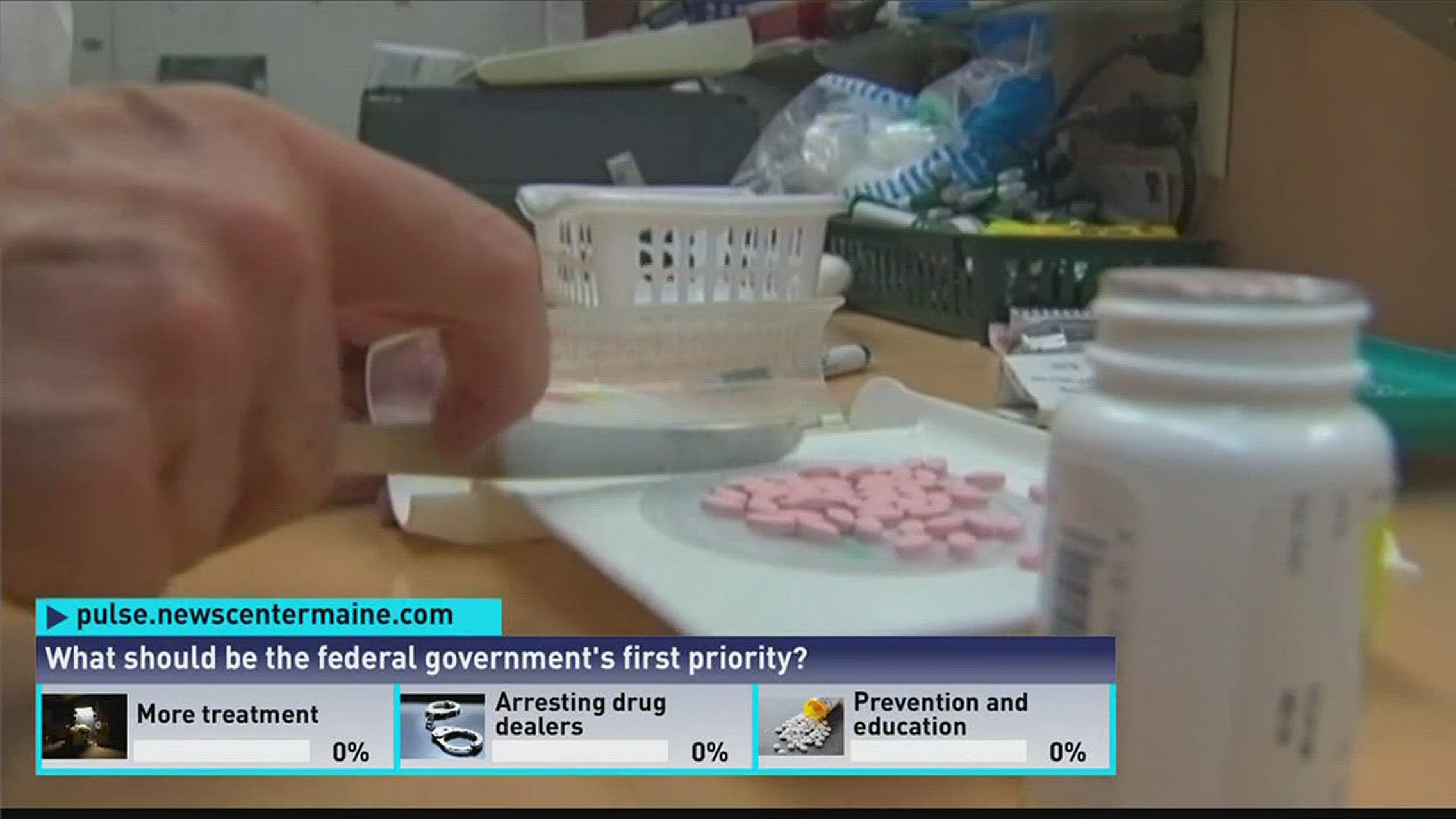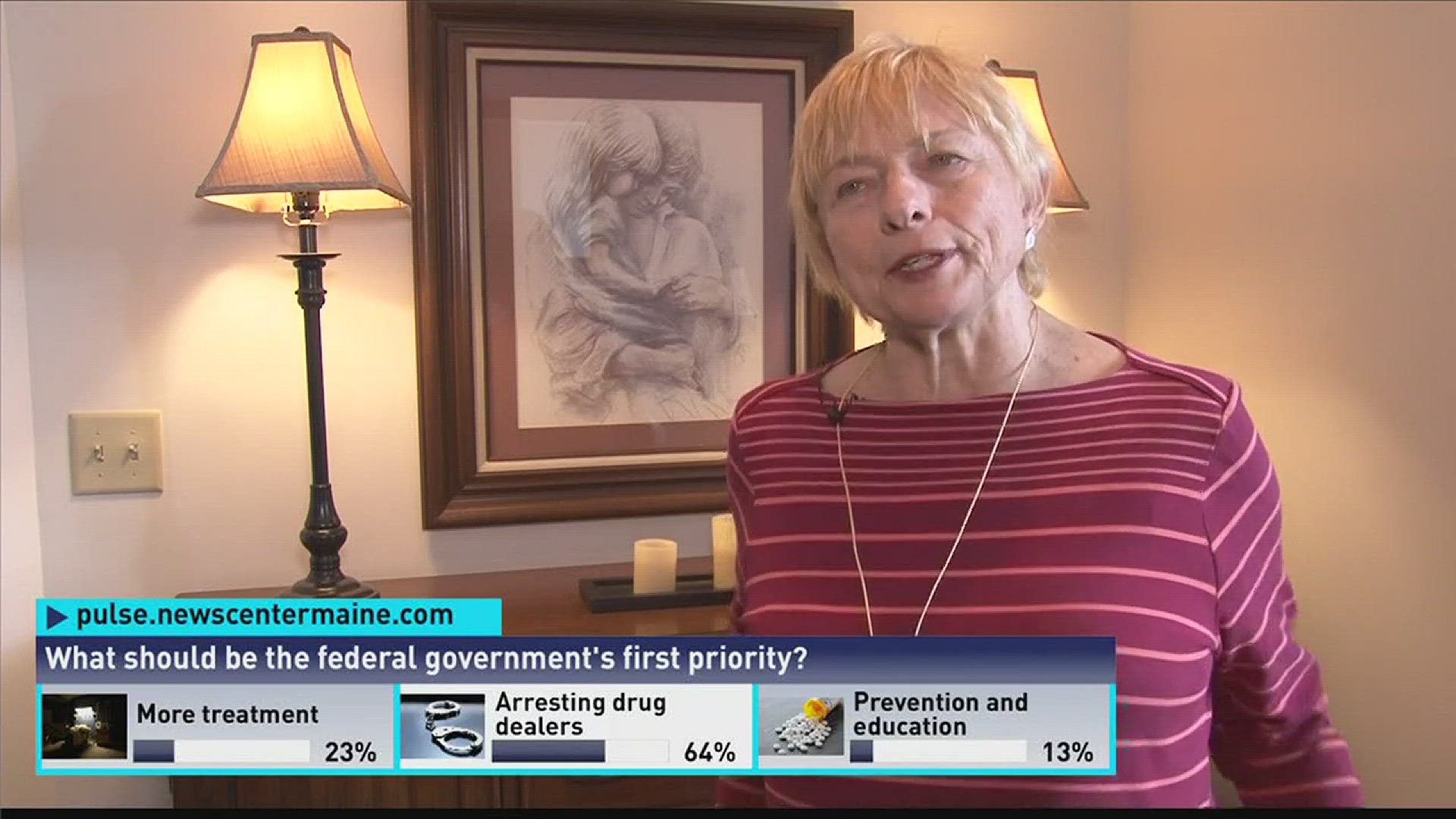PORTLAND, Maine (NEWS CENTER) -- Substance use disorder treatment providers believe President Trump's possible declaration of the opioid crisis as a national emergency could bring new funding to help those seeking recovery.
"The opioid crisis is an emergency and I'm saying it officially right now, it's an emergency. It's a national emergency. We're gonna spend a lot of time, a lot of effort and a lot of money on the opioid crisis," the President said Thursday. "We're going to make it a national emergency. It is a serious problem, the likes of which, we've never had. You know when I was growing up, they had the LSD and they had certain generations of drugs. There's never been anything like what's happened to this country over the last four or five years."
Gary Lamson, co-owner of Providence Place, a sober living organization in Portland, said this declaration could benefit those seeking treatment.
"If the declaration is made and the funding is available, yeah let's do it and do it' quickly," said Lamson.
Lamson has been sober for 17 years after struggling with substance use disorder himself.
"My life was a mess," said Lamson. "If there's nothing avaible for them, they're dying. They're dying everyday. When you know these people personally, it's hard."
Lamson said the declaration could allow more beds at detox facilities to be covered by Medicaid. Right now, the federal government caps the number of beds that can be reimbursed at 16.
"It can't wait another year, two years, kick it down the road. If the money is available is available to set that kind of thing up where some guy on the street that doesn't have any money can get into a detox -- he's got a shot. That's all we want to give these guys is a shot."
Milestone Foundation is the only non-hospital inpatient detox facility in the state. Executive director Bob Fowler said it is heartening to see the bipartisanship on this issue.
"The timing is crucial and really what we need is a really significant investment in turning the tide on this crisis," said Fowler.
It could also help decrease the price of naloxone, the overdose reversal drug, according to Fowler. He said overdose deaths are on pace to exceed last year's numbers. He said in 2015, more 52,000 people died of a drug overdose, and that the numbers of 2016 could exceed 60,000 as the numbers continue to be tallied.
He said now many people who overdose need multiple doses of naloxone to be saved.
The Department of Health and Human Services also stands to gain funding or additional resources if the national emergency is declared.
"The Department agrees this is an epidemic. Within DHHS we witness the impact of substance use disorder across our state—destroying the very fabric of our families," a spokesperson for DHHS wrote in a statement. "This is why it is important to dedicate available resources on proven, evidence-based treatment options that will provide the best results for an individual. In recent years, the Department of Health and Human Services has done that."
The spokesperson said if DHHS received funds, the department would possibly use the money to expand Medication-Assisted Treatment, with a focus on the uninsured population. It could also use that money to expand the Opioid Health Home system. Maine is only the third state in the nation with such a program.
The spokesperson added that funds might also be used to expand the Prescription Monitoring Program, which limits the dosage of these highly addictive painkillers that doctors may prescribe.
75 percent of heroin addictions begin with abuse of prescription opioids, according to DHHS.


